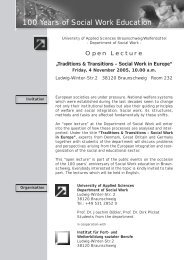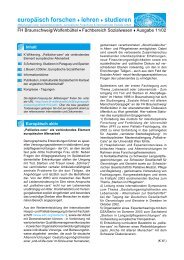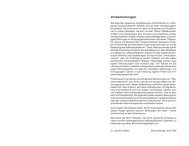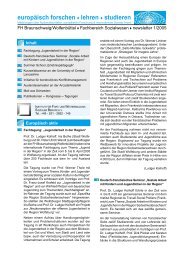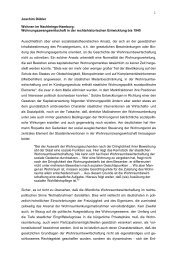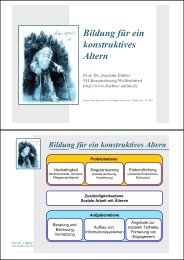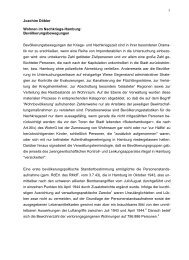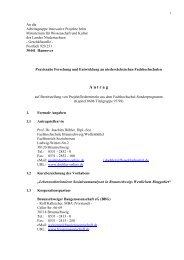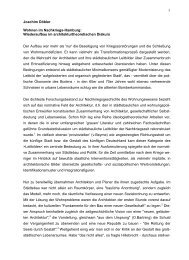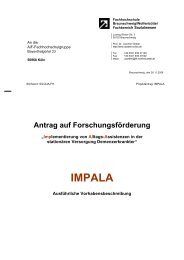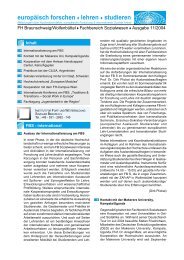CONTRIBUTIONS TO THE BOLOGNA PROCESS - Doebler-online.de
CONTRIBUTIONS TO THE BOLOGNA PROCESS - Doebler-online.de
CONTRIBUTIONS TO THE BOLOGNA PROCESS - Doebler-online.de
You also want an ePaper? Increase the reach of your titles
YUMPU automatically turns print PDFs into web optimized ePapers that Google loves.
12<strong>THE</strong> WAY FORWARDWhile much has been achieved, much remains to be done. In this section of the paper, aseries of consi<strong>de</strong>rations and questions will be formulated, and possible action is suggestedas a way to meet the challenges <strong>de</strong>scribed.First consi<strong>de</strong>ration: the legal framework for recognition is largely in placeThe backbone of this framework is the Council of Europe/UNESCO Lisboa RecognitionConvention and the EU Directives on recognition for professional purposes. It can evenbe argued that we are reaching the limits of what can be regulated through legalprovisions. Legislation is only useful to the extent that it can be implemented orenforced. Implementation or at least enforcement presupposes that States 4 or supranationalbodies 5 have a minimum authority in the matter. For aca<strong>de</strong>mic recognition, thehigher education institutions operate within a general framework of institutionalautonomy. While they are bound by general regulations, there are therefore limits todirect state influence on the recognition <strong>de</strong>cisions reached by individual institutions.New <strong>de</strong>velopments, like transnational education or other new forms and types ofeducation, are also increasingly important, and some of these <strong>de</strong>velopments are notclearly linked to territorial jurisdiction. It is not clear that national orinternational/European legal authority is sufficient for legal measures to be a viable formof regulation of these <strong>de</strong>velopments.While the international legal framework largely seems to be in place, there may,however, be a case for reviewing national legislation to verify that it is compatible withthe international legal framework as well as to consi<strong>de</strong>r the possibility and <strong>de</strong>sirability ofestablishing further agreements at regional level.Suggested action(i)(ii)(iii)Countries in the European Region which have not yet done so,should be encouraged to sign and ratify the Council ofEurope/UNESCO Lisboa Recognition Convention;National authorities should be encouraged to reconsi<strong>de</strong>r theirnational laws concerning the recognition of qualifications to makesure they are compatible with the international legal framework.In this process, they should make good use of ENICs/NARICs, ascentres of competence on recognition matters and on structures andqualifications in a broad range of countries.National authorities should also be encouraged to establishregional and/or subject based agreements, where appropriate. Such4 Whether through central authorities or through local and regional authorities, cf. Section II of the LisboaRecognition Convention.5 Like the European Court of Human Rights (Strasbourg) with regard to the European Convention onHuman Rights or the European Court of Justice (Luxembourg) for EU legislation.



